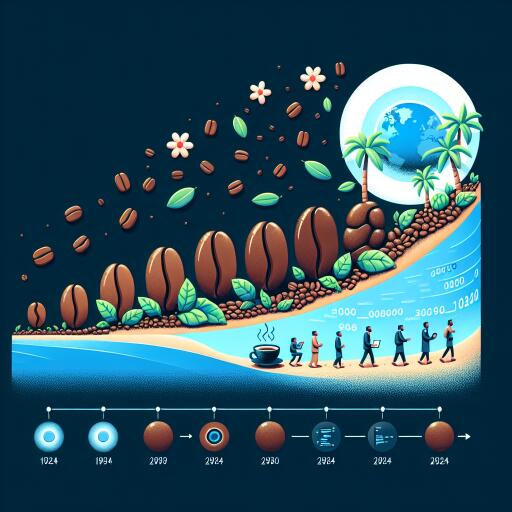Java’s Journey: From Coffee to Code — Exploring 2024’s Most Resilient Language
Welcome to the enthralling domain of Java, where a rich legacy of innovation aligns with the forefront of contemporary technology! As one of today’s most enduring programming languages, Java has evolved beyond its origins to become a force in enterprise solutions, mobile applications, and pioneering data science.
In this narrative, we examine Java’s progression from its modest beginnings at Sun Microsystems to its current prominence in cloud computing, artificial intelligence, and more. Discover how its “Write Once, Run Anywhere” philosophy empowers developers to create versatile applications across various platforms seamlessly.
Let’s unravel the attributes that make Java a perennial choice among developers, explore the visionary minds behind its creation, and examine the real-world applications that highlight its adaptability. Whether you are a veteran coder or embarking on your programming journey, this expedition through Java’s heritage is bound to inspire and fuel your enthusiasm for coding.
What is Java?
Java is a high-level, object-oriented programming language crafted for cross-platform compatibility. It is extensively employed in creating robust, scalable applications across diverse industries.
The Birth of Java
Java emerged in the early 1990s at Sun Microsystems, spearheaded by a team led by James Gosling. Initially named Oak, it aimed to be a versatile, device-independent language, capable of functioning on any hardware platform — a vision that persists even today in 2024.
The Origin of the Name “Java”
The developers aimed for a striking, distinct name, ultimately adopting “Java” as a tribute to their preferred coffee. This choice also mirrors the simplicity and allure they desired in the language.
Interestingly, Java’s logo, a coffee cup, signifies this origin and remains a well-known icon in the tech world.
The Purpose Behind Java’s Creation
Java was conceived to function effectively across various hardware environments — an essential requirement for early Internet-connected gadgets. With a strong focus on portability, security, and simplicity, Java’s potential extended far beyond its initial purpose.
As of 2024, Java continues to flourish due to its ability to adapt to emerging technologies like IoT, AI, and cloud computing.
Java’s Key Architect
James Gosling, often referred to as the “Father of Java,” envisioned a user-friendly, secure language capable of operating across multiple platforms. His contributions, along with those of his colleagues Mike Sheridan and Patrick Naughton, were crucial to Java’s early development and success.
Why Java Remains Popular
Java’s resilience and popularity stem from its robust framework, adaptability to new trends, and a vast community that supports it. Its comprehensive ecosystem of tools and frameworks positions it as a leader in the tech industry, catering to both novices and seasoned developers.
Conclusion
In conclusion, Java has consistently met the demands of developers and businesses, proving itself as a versatile programming language. Its adaptability to new technologies, strong community backing, and extensive applications ensure that Java will continue to be integral in the tech landscape. Whether you are just beginning or are an experienced developer, Java provides the necessary tools and frameworks to ensure success in your projects.








